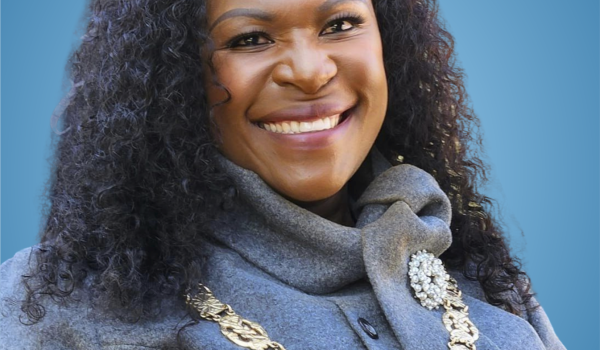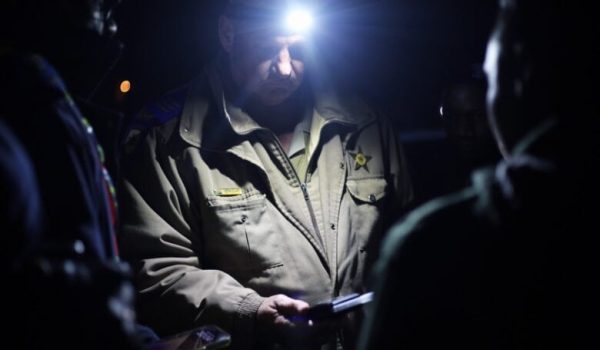Siyamthanda Kolisi is not taking his leadership in the country lightly. His tell-all autobiography hopes to show that he’s a human being, like everyone else, and that every change counts.

It’s not something you see often: a professional rugby player at the peak of his career publishing a book about his life before retiring from the sport. But Springbok captain Siya Kolisi has not had a normal life and certainly is not doing things the normal way.
For the Bok captain, who achieved hero status after becoming the first black captain to lift the Web Ellis Cup at the 2019 Rugby World Cup in Japan (and South Africa’s first ever black captain), it was important to tell his story now so that people could learn from him and that the next generation could see he is only human, like everyone else. His is almost a quintessential young South African story, with traumatic experiences of gender-based violence, poverty and substance abuse that one of the country’s most talented sportspeople had to overcome.
Speaking at Adidas’s recent Impossible is Nothing campaign event at the DHL stadium earlier this week, Kolisi just came back from Australia where his team only managed one victory from four games on the away leg of the rugby championship. It was only a single win but it was a historic one against the All Blacks. Kolisi was one of the top performers on the field, which will probably be detailed in a chapter in his next book. But for now, it’s all about his Rise – the title of his autobiography released this month.
“It’s my mum’s name. My mum’s name is Phakama and in English it means “rise” so that was perfect for me. The journey too. In everything I’ve faced, I had to rise. I still have to rise today.”
In the book, Kolisi described his mother as “beautiful, bubbly and vivacious. She was the life and soul of things; she used to light up every room she went into, and she’d light up whenever she saw me.”
Kolisi’s mother died when he was a teenager and she, like many women in South Africa and other members of his family, was a victim of gender-based violence. This is one of the reasons why the fight against it is so close to Kolisi’s heart. He is puts his money where his mouth is too; 60% of the proceeds of his book will go to the Kolisi Foundation, which is working with various organisations towards the eradication of the violence.
“Gender-based violence is the biggest problem in South Africa and for me personally. I’ve seen it firsthand with people that I love.”
He credits his wife Rachel Kolisi for encouraging him confront the issue.
“She said, ‘look, you’ve always wanted to do something for your mother and now you’re in a position to help’.”
Violence against women and children is only one of the life changing things Kolisi experienced in Zwide, the Eastern Cape township where he grew up. He fell in with some older kids when he was eight or nine and “sniffed petrol and smoked weed” among other things.
“If I’d gone down that path, I could have ended up a tsotsi, a young criminal, and from there you only have two real options: jail or death. Or both,” he admits in the tome of his life so far.
It was not only at that age he gave in to “temptation”, as he described at the launch of sports brand’s campaign.
“It’s a journey and there are different challenges. With more success there are more temptations and all of these things. People don’t tell you about things before you make it.”
As a former pupil at one of the country’s most prestigious sporting schools, Kolisi’s rugby Grey High School rugby career saw him join the Western Province Academy right after matriculating. He went on to play for the senior provincial team, Stormers, and then lead the Springboks. On that journey, alcohol was a big lure and something that affected his personal life more than anything else.
In the “Springbok” chapter of his book, Kolisi, who was 24 years old at the time, explained he would drink liquor without stopping.
“Whenever I opened a drink it was though there was a message saying ‘drink me, keep on going’. I’d binge and not remember what had happened the night before.”
These aren’t new things in our society. The most recent World Health Organization report on worldwide alcohol consumption, South Africa ranked sixth in the world for the highest intake. In 2020, at the height of the COVID-19 pandemic and alcohol sales were heavily restricted to make space in hospitals for the infected, the Road Traffic Management Corporation said drunk driving accounted for 27.1% of all accident-related deaths.
This is exactly why Kolisi wanted to be open and honest about his personal struggles, something a lot of high-profile people tend to avoid.
“I want people to learn from me. The book is not about me making money or anything. It’s not just my story; it’s so many other South Africans’ story and talking about the challenges,” he said at the event.
As part of his fight against gender-based violence, the springbok captain is trying to break a “macho rugby men” stereotype. Rugby players are especially seen as gladiators, untouchables and almost emotionless as they go about their heavy work. Talking about their feelings isn’t something we associate with the rough and tough sport and we have seen over the years that not speaking up about problems could lead to depression and substance abuse. Siya says repeatedly in his autobiography and in interviews that he is still learning and that he has to learn to deal with his emotions too but he wants to be better:
“As men we don’t share our feelings. Like, my dad he never told me how he felt and I was never able to tell Rachel ‘I love you’ and stuff because i didn’t know how to – nobody taught me that,” he explained.
In one of the final chapters of the book he writes: “I try to show respect by doing my share of what has often been seen as women’s work – cooking, cleaning, ironing, tidying.”
“It’s about encouraging other men to be more involved at home, to chip away at those strict gender roles which construct a mindset that leads to violence.”
If anyone questioned if this perspective has had an adverse effect on the captain of one of the world’s biggest rugby teams it hasn’t. Kolisi’s on-field performance has gone from strength to strength. In his last couple of games in the rugby championship, the flanker put his body on the line, being one of the consistent top tacklers and winning turnovers to help his team get on the front foot at crucial times.
In rugby, there’s a saying that gets thrown around for every new player coming into the fold: “leave the jersey in a better place”. For Siyamthanda Kolisi, a boy from a township in the Eastern Cape born under the same circumstances as millions of South Africans, that’s more than simply adding another trophy to the cabinet. It’s about changing lives off the field, fighting for “the one” in his love life, and being proud of where he comes from. By doing so, he will not only leave the jersey in a better place, but his country too.
Source; the EyeWitnessNews









Comments